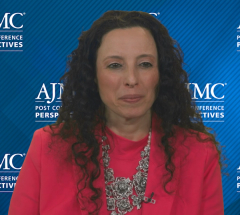
Eliminating Medication Copayments for Low-income Older Adults at High Cardiovascular Risk: A Randomized Controlled Trial
Dr Michos examines a controlled trial focusing on co-payment elimination and its effects on cardiovascular outcomes for low-income adults.
Erin Michos, MD, MHS: This next trial that was presented at the ACC [American College of Cardiology meeting] that I think was interesting, although the results might be surprising or counterintuitive, was looking at whether eliminating co-pays for medications that treat cardiovascular risk factors, whether that can prevent major adverse cardiovascular events. Now, some important things to note about this trial, it was conducted in Alberta, Canada. In Canada, unlike the United States, there is socialized health care, so all patients have at least access to hospitalizations and physician visits covered. That’s a little different than in the United States. In this trial, they enrolled patients who were aged 65 and over, who had high cardiovascular risk, and who had lower income. Their incomes had to be less than $50,000 Canadian dollars, which is around US$37,000. They did have access to medications, but with medications, there is typically a 30% co-pay. So they randomized over 4700 patients to either having that 30% co-pay eliminated versus not, and they were followed for 3 years to see how that translated in major adverse cardiovascular events.
There were 15 different medications that had this co-payment waived, and they were generally medicines used to treat risk factors such as statins, ACE [angiotensin-converting enzyme inhibitor] and ARBs [angiotensin receptor blockers], beta blockers and diuretics, and antiplatelet therapy. Overall, this translated to about $35 Canadian dollars, or US$26, on average saved per patient. So the reduction may be relatively modest, and unfortunately, although there was a 14% trend for reduction in the primary end point, which included major cardiovascular events as well as cardiovascular hospitalizations, this did not meet statistical significance. I think that was surprising to some that we didn’t see the benefit that might be demonstrated.
Diving a little deeper into this, again as I mentioned, the amount of money saved was relatively modest, US$26, and even though these individuals were lower income, maybe that wasn’t enough financial savings to prevent outcomes. That might be different if it had been applied in the US population, where many patients don’t have health insurance and have much higher co-pays and much higher medication costs. Another caveat on the trial is that the event rate was lower than anticipated, so it might have been underpowered to show statistical significance in the major cardiovascular outcomes.
But it also may be that these high-risk patients who have lower socioeconomic status [in general] have a lot of barriers to health care. The co-pays may be one of them, and we do know that 1 in 8 patients cite cost as a reason for medication nonadherence. But these patients may have a lot of other barriers beyond just the cost of the medicine, related issues from transportation, to health visits, or food insecurity. There’s housing insecurity. There are so many other social stressors that likely 1 single intervention such as waiving co-pays may not be enough to tackle what we know is a problem. We know that individuals of lower socioeconomic status have worse outcomes, but it didn’t seem at least that just waiving the co-pay cost of the medication could significantly move the needle and impact reducing risk.
Transcript edited for clarity.
Newsletter
Stay ahead of policy, cost, and value—subscribe to AJMC for expert insights at the intersection of clinical care and health economics.









